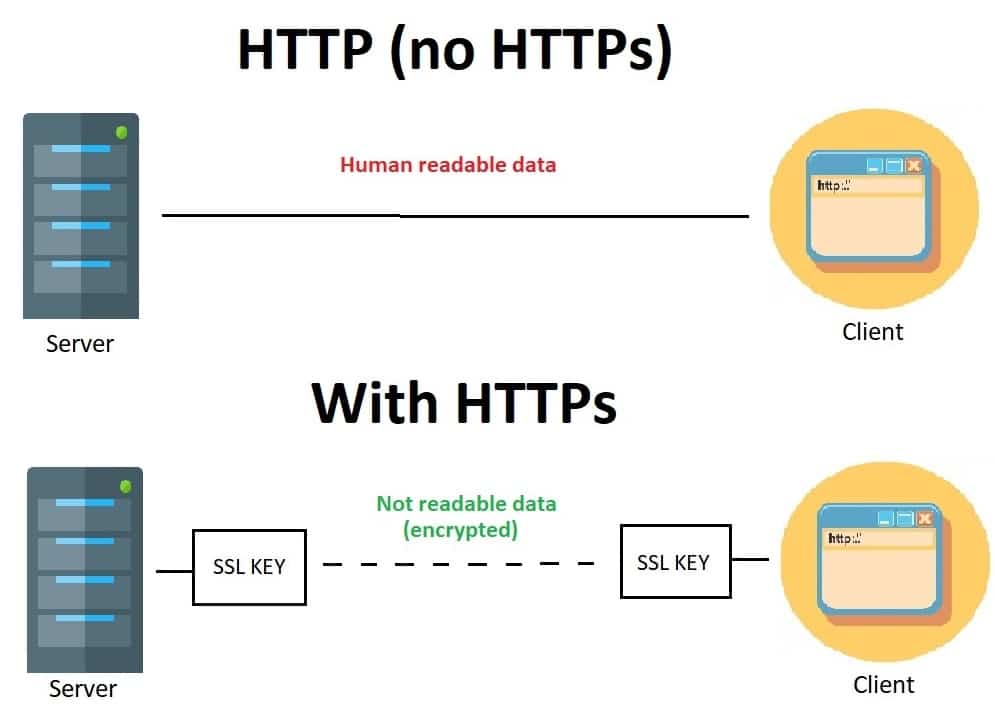If you ever used proxies you already know that HTTP/s and SOCKS are the two main internet protocols that proxy servers use to receive and forward client connection requests
What is an SSL proxy?
It us a regular HTTP proxy capable of handling SSL/TLS encryption and decryption on behalf of the server or client, resulting in additional advantages in terms of security and performance. Let’s delve into the concept of an SSL proxy and its associated benefits:
- SSL/TLS Encryption: An SSL proxy facilitates secure communication between clients and servers by encrypting the data transmitted over the network. It establishes an encrypted tunnel between the client and the proxy, as well as an additional encrypted connection between the proxy and the server. This robust encryption safeguards sensitive information against interception or tampering attempts by malicious entities.
- Offloading SSL Processing: The encryption and decryption processes involved in SSL can be computationally intensive for web servers, especially when managing numerous client connections. By offloading the SSL processing to an SSL proxy, the server’s workload is alleviated, enabling it to concentrate on other tasks and enhancing overall performance.
- Centralized Certificate Management: An SSL proxy centralizes certificate management. It takes charge of SSL/TLS certificates and keys, simplifying the complexity associated with deploying certificates across multiple servers. This streamlines certificate renewal, updates, and configuration changes.
- Load Balancing: SSL proxies can double up as load balancers, effectively distributing incoming traffic across multiple backend servers. This equitably distributes the workload, ensuring high availability and scalability. The SSL proxy terminates SSL connections, balances traffic among backend servers, and re-encrypts the traffic prior to forwarding it to the appropriate server.
- Content Caching: SSL proxies are capable of caching static content, such as images, scripts, or CSS files. This caching mechanism accelerates response times for subsequent requests. By serving content directly from the proxy cache instead of fetching it from the origin server each time, caching reduces the strain on backend servers and improves overall performance.
- Security and Monitoring: SSL proxies offer additional security features such as deep packet inspection (DPI), traffic filtering, and access control. They empower administrators to monitor and analyze network traffic, identify and prevent attacks, and enforce security policies.
- Flexibility and Compatibility: SSL proxies are designed to seamlessly integrate with various web servers and applications. They can be implemented at different network layers and seamlessly integrated into existing infrastructure without necessitating extensive modifications to applications or servers.

What are the best uses for a HTTPS proxy
Using HTTPS proxies for add verification
To guarantee the appropriate presentation of advertisements in suitable contexts, targeting the intended audience at optimal moments is essential. Enhance your sessions and initiate numerous verification tasks simultaneously to emulate natural traffic patterns, preventing any potential flags, blacklisting, or bans. Using a residential proxy network effectively fulfills the majority of ad verification requirements, enabling uninterrupted testing of advertisements by ad bots.
For this purpose we recommend our rotating residential proxies, as they support SSL over HTTP. Meaning that the proxy server handles the first request as HTTP. Once it connects you to the visited website, it will transport the SSL certificate of that website. In this way, you are not thrown a SSL certificate mis-match error (as in the case of using an HTTPS proxy with its SSL certificate and then accessing a website with a different SSL certificate).
If you want to test, you can set the proxy in your browser and access any website. And you will see that the connection becomes SSL (showing the little green lock in the address bar), once the handshake occurs and the HTTP proxy is able to transport the visited website’s SSL certificate. Hence, making your connection 100% HTTPS.
Using HTTPS proxies data scraping
As long as you follow ethical practices, respect website terms of service, and ensure that the scraping activity aligns with legal requirements, you can get endless public data about a specific subject or field. As simple as it sounds, gathering huge ammounts of data is a very difficult process as you need to bypass multiple restrictions.
Our rotataing residential proxies setup is optimal for data scraping. The residential proxies have two options:
1) Request-based rotation – your IP will rotate on each request of your tool or browser (such as page refresh)
2) Sticky IP sessions – you’ll get a sticky IP that can be used from a few minutes up to one hour, which you can change on demand sooner than its expiration time.
In conclusion, SSL proxies enhance security measures, alleviate SSL processing burdens from servers, centralize certificate management, enable load balancing, improve performance via content caching, provide robust security features, and offer flexibility and compatibility with existing infrastructure. These benefits make SSL proxies an invaluable asset in fortifying the security, performance, and scalability of web applications and services.